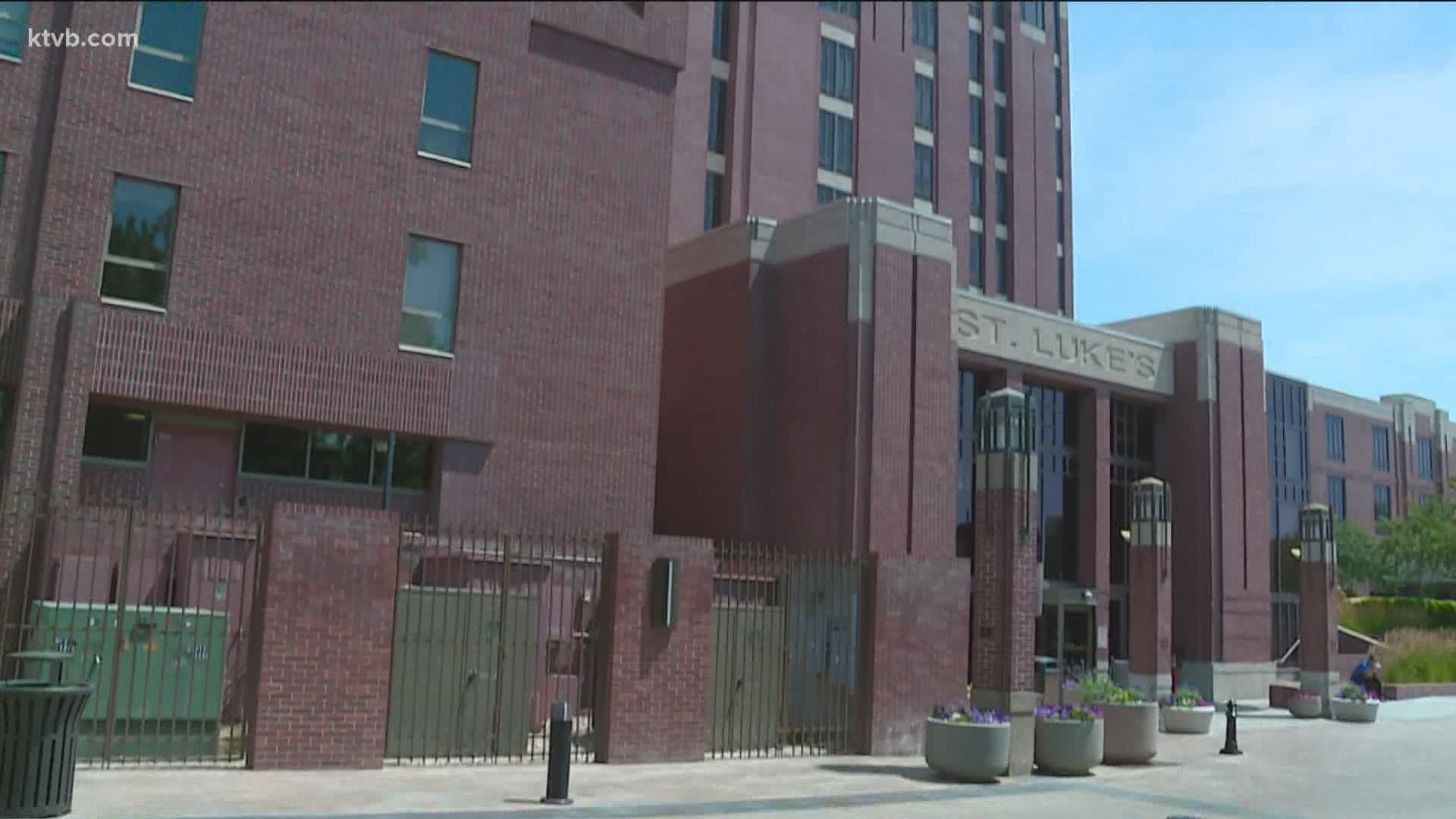BOISE, Idaho — Employees of Idaho’s largest employer who don’t plan on getting a COVID-19 vaccine may have to look for work somewhere else if they don't comply with or get exempted from a new vaccine requirement.
St. Luke’s announced the decision on Thursday to require all staff members to get the first dose of the vaccination by Sept. 1. However, not everyone sees eye to eye on it.
Travis Patrick works in Health Information Management for St. Luke’s and told KTVB that he feels the requirement came without warning.
“We’re kinda shocked. Being it was something [that happened] so fast,” Patrick said. “It’s a very experimental drug. I don’t trust it right now. It’s had too many variables of instances. They say it’s safe but it’s not.”
However, executives at St. Luke’s said now was the time for the COVID-19 vaccine requirement.
“Evidence is overwhelming. The vaccines are not only safe, they’re highly effective,” St. Luke’s Chief Physician Executive Dr. Jim Souza said.
The vaccines are still Emergency Use Authorization (EUA) and not FDA approved. For that reason, Patrick isn’t convinced it’s safe, he wants more data on the long-term impacts of the shot.
“[I don’t trust it] at this point, not until there’s been at least two to three years or so of evidence on it,” Patrick said.
The median time for an FDA vaccine review is 12 months, according to Dr. Souza.
St. Luke’s didn’t wait for FDA approval to require vaccines because of an increase in positive COVID-19 cases among employees and the rise of the delta variant, Dr. Souza said.
“We just don’t feel like we have the luxury of waiting any longer now to protect our patients and our people,” Souza said.
St. Luke’s President and CEO Chris Roth echoed that sentiment.
“We felt it was the right time to make this next step, relative to the requirement about the vaccine,” Roth said.
That doesn’t leave many options for employees like Patrick who don’t expect to qualify for a medical or religious exemption.
“Patients are safe. We take all the precautions to keep things clean, ya know? Masks, gloves, suits, we wash our hands, we have hand sanitizer stations everywhere.” Patrick said. “I shouldn't have to worry about trying to come up with proof trying of why I don't want to take something to try and continue to work. Especially as some people don't deal directly with patients.”
Roughly 80% of St. Luke’s staff are vaccinated, according to Souza. He said the closer an employee works with patients, the more likely they are to be vaccinated. Doctors and nurses were found to be vaccinated at higher rates than the custodial staff.
Souza attributed this trend to the experiences those employees had while treating patients who had contracted the virus.

